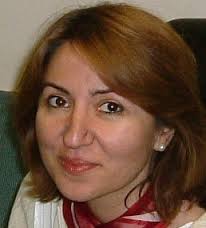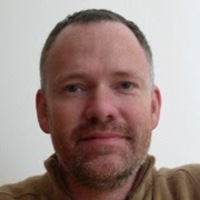APPIS 2018 will have three invited speakers.
Prof. Petia Radeva

Deep learning in a multi-task framework. Application to food analysis
Prof. Radeva is IAPR Fellow and Head of Barcelona Perceptual Computing Laboratory (BCNPCL) at the University of Barcelona and Head of Medical Imaging Laboratory (MILab) of Computer Vision Center (www.cvc.uab.es). Her present research interests are on development of learning-based approaches for computer vision and image processing.
Personal Web: http://www.cvc.uab.es/people/petia,
Google Scholar, ResearchGate
Prof. Michael Biehl

Bio-medical applications of prototype-based machine learning
Prototype-based systems in machine learning are discussed. In this framework, observations, i.e., data, are stored in terms of typical representatives. Together with a suitable measure of similarity, such systems can be employed in the context of unsupervised and supervised analysis of potentially high dimensional, complex data sets.
Prototype-based systems offer great flexibility, are easy to implement, and can be interpreted easily in the context of a given application. The latter point is of particular importance in the bio-medical domain. Example schemes will be discussed in terms of unsupervised and supervised Vector Quantization, including the use of adaptive distance measures in relevance learning.
Methods will be introduced and illustrated in the context of selected applications in the bio-medical domain, ranging from data analysis in basic life science research to concrete diagnostic challenges in medicine.
Biography
Michael Biehl is Associate Professor with Tenure at the Johann Bernoulli Institute for Mathematics and Computer Science, University of Groningen, The Netherlands.
He received a Ph.D. in Physics from the University of Gießen, Germany, in 1992, and completed the Habilitation in Theoretical Physics in 1996 at the University of Würzburg, Germany.
Currently, his main research interests are centered on the theory and modelling of machine learning processes and the development of efficient algorithms for intelligent data analysis. In this context, interdisciplinary applications, for instance in bio-medical research and astronomy, play a key role.
Website: http://www.cs.rug.nl/~biehl
Prof. Theo Gevers

Intrinsic Image Understanding by Deep Learning
In this talk, I present how deep learning can be used for automatic image understanding. I will show how deep learning can be used in the domain of object recognition, intrinsic image decomposition, and facial expression analysis including emotion recognition and age/gender estimation. Finally, the future of 3D scene reconstruction and understanding is discussed.
Biography
Prof. dr. Theo Gevers is a Full Professor of Computer Vision at the University of Amsterdam. His research area is Artificial Intelligence with the focus on machine learning and computer vision and in particular image processing, 3D (object) understanding and human-behavior analysis with industrial and societal applications in fashion/retail, healthcare, real estate, smart cities, and automotive. He is the co-founder of Sightcorp, 3DUniversum and Scanm.
Personal Web: https://staff.science.uva.nl/th.gevers/
Google Scholar: https://scholar.google.com/citations?user=yqsvxQgAAAAJ
